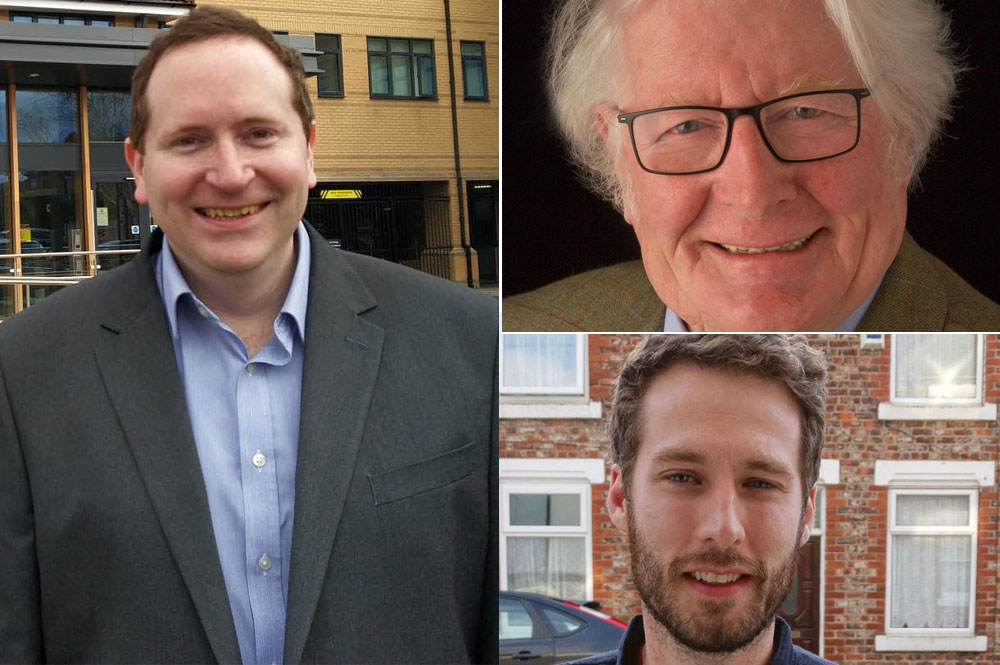City of York Council leader Keith Aspden survived a vote of no confidence at an ‘extraordinary’ council meeting, with all Liberal Democrat and Green councillors voting to support him.
But he faced calls to apologise for his involvement in a secret meeting to agree a £404,000 payout to the former council chief executive Mary Weastell. And opposition councillors said an independent report into the council’s handing of the settlement had “humiliated” the city.
The meeting was called to discuss the findings of a critical report by independent auditors that raised concerns over the council’s handling of a £404,000 payout to the former chief executive Mary Weastell.
Auditors also said Cllr Aspden had a clear personal interest because Ms Weastell had filed an employment tribunal claim against him and they say he should have left the room during a meeting to decide the payout.
Instead, he chaired the payout meeting, although he was advised that he had no financial interest.
Cllr Aspden said: “Some focus has been on myself as an individual, having had the privilege to be a local community councillor in the city for nearly 20 years.
“I hope and know that colleagues, friends and others know my character well enough to understand and see how I conduct myself, rather than attempt to misrepresent a human resources issue.”
He firmly denied allegations of bullying which the report said were made by Ms Weastell and he said bullying is “unacceptable”.
‘Name dragged through the mud’
Labour councillors tabled a vote of no confidence, which was supported by Conservative councillors.
Labour Cllr Danny Myers said: “It is a humiliating report for the council and for the city and an appalling indictment on the council’s leadership. Clearly the decent thing for the council leader to do now would be to resign.”
Conservative group leader Paul Doughty said: “It does not reflect well on the city at all. In defending [the council leader] his Lib Dem colleagues and the Greens are bringing shame on themselves too.”
Independent Cllr Mark Warters said Ms Weastell has “had her name dragged through the mud for the best part of two years” as a result of the issues raised in the report.
Independent Cllr John Galvin said in his 50 years in local government he had “never heard so much twaddle”.
He said: “How Lib Dem members, many of whom are honourable people, how they can stand up and tell us that it’s all a political plot and everything’s fine and dandy and what a wonderful council they’re running beats everything I’ve heard before.”
He said if the council leader admitted he had made a mistake and apologised for it, he would not support the vote of no confidence.
‘Robust leadership’

Cllr Ed Pearson said the administration is providing “stability and robust leadership”.
And Cllr Denise Craghill said the no confidence motion was full of “unsubstantiated allegations”, adding: “Labour is well aware that a successful vote of no confidence could throw the council into chaos just at this crucial time when the city needs stability. There is no stable alternative majority coalition.”
Councillors agreed to an action plan at the meeting, which includes more training for councillors in how to spot conflicts of interest and a revision of the code of conduct.
The vote of no confidence failed, with 25 votes against, 21 in favour and one abstention.
Auditors Mazars were questioned by councillors about the public interest report at the start of the meeting.
Mark Kirkham, from auditors Mazars, told the extraordinary council meeting: “During that [payout] meeting it’s not clear that members acted reasonably because the facts weren’t clear on why the council should invest money in a settlement agreement and we also think that the findings are significant because there was evidence of bias during that meeting because of the conflict of interest.”
He was asked if he considered that the council had saved money as a result of the restructure of senior staff and said: “In our view affordability isn’t the only reason why a decision should be deemed a success.
“We also expect local authorities to act within the law and demonstrate that they have done so. That isn’t the case that’s been presented during our investigations of the discussion that took place in February 2020.”
But Cllr Denise Craghill said: “My understanding is that part of the argument for coming to an ex gratia payment was not that the council thought it would lose [the employment tribunal] – I think it thought it had quite a strong case to defend it.
“But that any employment tribunal take a significant length of time and it takes a significant amount of money to contest, whatever the outcome. That money would be saved by concluding an agreement right away. Are councils not entitled to do that and is it not quite commonplace?”
But Mr Kirkham asked if the council was confident of winning the case, why was it a good use of public money to use £65,000 to avoid the case.
Not well served
Cllr Ashley Mason added that Cllr Aspden “wasn’t well served” by the existing code of conduct.
Cllr Andy D’Agorne, who took part in the meeting to agree the payout, said he felt the business case “did demonstrate clearly the recommended approach would provide value for money for taxpayers”.
He said a citizens’ advisory panel will be created to invite residents to have their say on governance and transparency at the council.
Cllr Tony Fisher said he believed the report covered issues that were “clearly not audit territory, it’s standards territory and that’s where it should be tested”.
Councillors agreed to an action plan based on the auditors’ recommendations in the public interest report.
